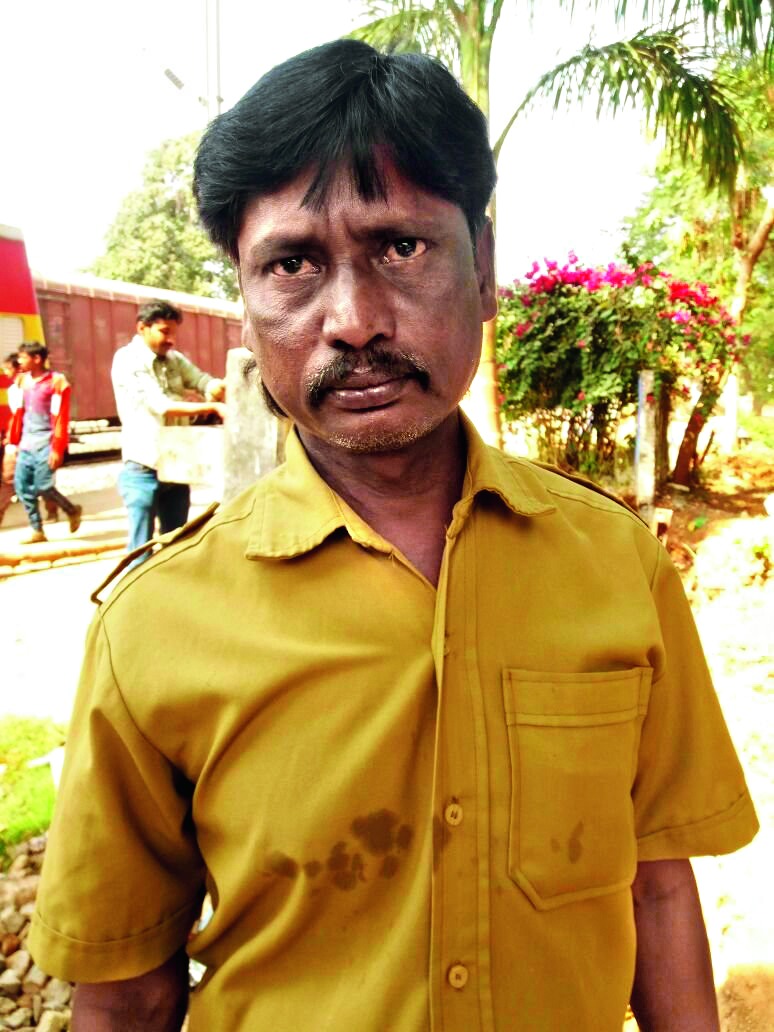
Berhampur, Jan. 24: A railway guard in the signal cabin outside Kuneru had noticed "fire and smoke on the railway track" (near the accident site) before the ill-fated Bhuban-eswar bound Hirakhand Express crossed the stretch and derailed, resulting in the death of 39 persons on Saturday.
Deposing before the National Investigation Agency, T. Appa Rao, the guard who was in the signal cabin, has said that before the 18448 Hirakhand Express approached the accident site, he had noticed fire and smoke.
"I immediately tried to inform the station master about the fire and smoke on the track over phone. While I was talking to the station master, the train derailed and several bogies overturned," he told The Telegraph over phone from Kuneru.
The driver of the train, D.N. Raju, who escaped unhurt, told the team that the train was moving at a speed of 70kmph (kilometres per hour) when the mishap occurred.
"I immediately applied the emergency brake when I heard a loud noise. I have no idea as to why the train derailed," Raju said to the NIA team. The engine had not overturned.
Official sources said that Appa Rao's statement indicated that the mishap was a case of sabotage. Material evidence have been collected and sent for forensic examination. "We will be able to say anything concrete only after test reports are available," said a railway official.
Kuneru, where the mishap occurred, is situated in Komarada mandal in Andhra Pradesh.
It is only 10km away from the Andhra-Odisha border, known as a hotbed of Maoist movement.
In 2005, the area was under the grip of Maoists and Kumeru had seen a train robbery conducted allegedly by the Maoists.
Three RPF personnel had lost their lives and Rs 15 lakh was looted in the incident on December 25, 2005.
However, a leader of local railway workers' union, who did not want to be identified, alleged that the railway staff, especially those engaged in safety-related wings, were "extremely overburdened".
The total manpower required in the Waltair railway division is 21,700 and there are 4,000 vacant posts.
The situation in safety-related wings, such as telecommunications, signalling and line maintenance, are particularly bad with one-fourth of the sanctioned strength remaining vacant.
About 28 per cent of the posts of drivers are also vacant.










